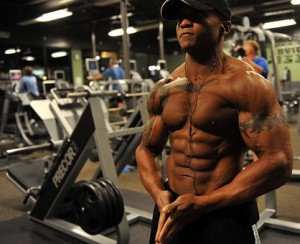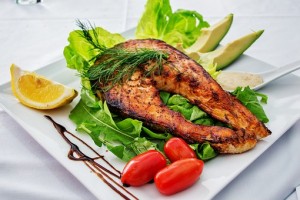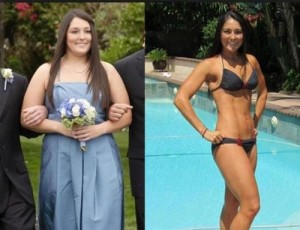I have a friend who wants to be a competitive bodybuilder and has done an amazing job of creating an enviable physique. He is hard as a rock with definition so thorough every muscle is visible in detail. And lean? He’s at four percent body fat, but that’s where his problem lies. He is months away from competition and won’t be able to maintain his physique, so his chances of winning will dwindle with each day.

Sure you look great now, but it will be hard to maintain that physique if the competition is more than a week or two away.
We got to talking, and I realized that, even though there’s a lot of good information out there about building muscle and minimizing fat, there are also still a lot of myths. Plus, even though the good information is readily available, so are the myths, and sifting through the fallacies to find the facts can take a lot of time–and competitive bodybuilders who are just starting out don’t have the kind of time they need for the trial and error it takes to find out which advice to follow. So! Because I have been a competitive bodybuilder, am currently a personal trainer, and have done the trial and error thing myself as well as sifted through the research, I’ve dedicated the next 4 weeks to setting the fat and muscle facts straight–one myth at a time.
Can You Gain Muscle and Lose Fat at the Same Time?
Today, to kick off our four-part series, we’ll look at whether or not you can gain muscle and lose fat simultaneously. Logically, it shouldn’t be able to be done. As BuiltLean points out, fat loss is a catabolic process while muscle building is an anabolic process–one requires burning more calories than you take in and the other requires increasing your nutrient intake. If you cut your calories by too much, you’ll end up burning muscle along with the fat instead of building lean mass. The good news for everyone–bodybuilders and Average Joes alike–is that it can be accomplished if you’re smart about it.

Gaining muscle while loosing fat requires a balancing act. Cut your overall calories, but also swap out most of your carb calories for protein.
Muscle and nutrition expert Mark McManus points out that you need to pay as much attention to the kind of calories you’re eating as you do to the amount. Yes, you should reduce the number of calories you eat in a day to create a fat-burning deficit, but just make sure you’re reducing mostly carbohydrate calories and replacing some of them with protein calories. That advice isn’t just McManus spouting a theory. A study published in the American Journal of Clinical Nutrition found that subjects placed on a low-calorie diet all lost weight, but the group of people who’s diets were low-cal but high in protein lost the most body fat.
My advice to my bodybuilding friend is to back off of the cardio. Also, relax your diet a little. You need to feed your muscles enough to maintain your mass, and any fat you gain can be shed in the last few weeks before you compete. At that point, if you’ve put on more fat weight than you want, increase the intensity of your workouts and even add a little cardio back into your regimen if you want to. Also, before you make that call, get an outside perspective. Don’t simply look in the mirror because you’ll think you’ve gained too much fat. Bodybuilders are notoriously overly critical of themselves and, like a person suffering from anorexia, can see more fat on their frames than is really there. Actually get your body fat measured by a professional to see where you’re at so you don’t go overboard trying to cut fat and end up losing muscle.
No, Muscle and Fat Don’t Metamorphose

You can’t turn fat into muscle, but you can replace one with the other using a combination of diet and exercise. Image by Maggi Bautista
A myth related to gaining muscle and losing fat at the same time is that you can turn fat into muscle–or the reverse, that if you don’t exercise and eat right, your muscle will turn into fat. Although many exercise programs, diet plans, and workout equipment salespeople claim they have the secret for turning fat into muscle, according to Bodybuilding.com, that’s an impossible feat. Fat and muscle are two very different tissues, and one cannot become the other.
One can replace the other, however, and you can replace fat with muscle when you reduce calories and carbs and increase protein. For anyone starting at square one in preparing for a bodybuilding meet, the expert advice is to bulk up initially, then shed the fat once you’ve met your muscle building goal. That means eating high protein throughout your training, but not worrying about cutting calories or carbs until you’re ready to start leaning up for the competition.
Train hard, stay clean!
–Matt
